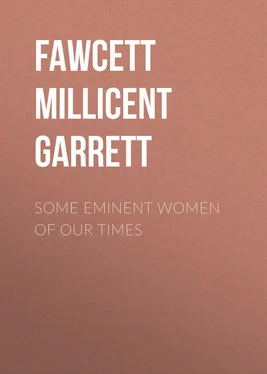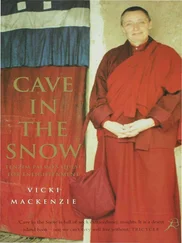Millicent Fawcett - Some Eminent Women of Our Times
Здесь есть возможность читать онлайн «Millicent Fawcett - Some Eminent Women of Our Times» — ознакомительный отрывок электронной книги совершенно бесплатно, а после прочтения отрывка купить полную версию. В некоторых случаях можно слушать аудио, скачать через торрент в формате fb2 и присутствует краткое содержание. Жанр: foreign_antique, foreign_prose, на английском языке. Описание произведения, (предисловие) а так же отзывы посетителей доступны на портале библиотеки ЛибКат.
- Название:Some Eminent Women of Our Times
- Автор:
- Жанр:
- Год:неизвестен
- ISBN:нет данных
- Рейтинг книги:3 / 5. Голосов: 1
-
Избранное:Добавить в избранное
- Отзывы:
-
Ваша оценка:
- 60
- 1
- 2
- 3
- 4
- 5
Some Eminent Women of Our Times: краткое содержание, описание и аннотация
Предлагаем к чтению аннотацию, описание, краткое содержание или предисловие (зависит от того, что написал сам автор книги «Some Eminent Women of Our Times»). Если вы не нашли необходимую информацию о книге — напишите в комментариях, мы постараемся отыскать её.
Some Eminent Women of Our Times — читать онлайн ознакомительный отрывок
Ниже представлен текст книги, разбитый по страницам. Система сохранения места последней прочитанной страницы, позволяет с удобством читать онлайн бесплатно книгу «Some Eminent Women of Our Times», без необходимости каждый раз заново искать на чём Вы остановились. Поставьте закладку, и сможете в любой момент перейти на страницу, на которой закончили чтение.
Интервал:
Закладка:
The connection of England and Hanover under one crown caused an intimate association between the two countries. William Herschel’s first visit to England was as a member of the band of the regiment of which his father was bandmaster. On this first visit to England, William expended his little savings in buying Locke’s “Essay on the Human Understanding.” Jacob made an equally characteristic purchase of specimens of English tailoring art. These professional journeys to England led, in the course of time, to William Herschel establishing himself as a music-master and professional musician at Bath. This, however, he very early regarded merely as a means to an end. He taught music to live, but he lived for his astronomical studies and for the inventions and improvements in telescopes which he afterwards introduced to the world. When Caroline was seventeen years old, her father died, leaving his family very ill provided for; Caroline was more closely than ever confined to the tasks of a household drudge and to endeavouring to supply home-made luxuries for Jacob. This went on for five years, the mother and sister slaving night and day in order that Jacob might cut a figure in the world not humbling to the family pride. In 1772 William Herschel unexpectedly arrived from England, and his short visit ended in his sister Caroline returning with him to Bath. She left, as she writes with some awe, even after an interval of many years, “without receiving the consent of my eldest brother to my going.”
There could not possibly be a greater contrast than that between Caroline’s life in Hanover and her life in England. From being a maid-of-all-work in a not very interesting family, where there was a dull monotony in her daily routine of drudgery, she found she was to become a public singer, an astronomer’s apprentice, and an assistant manufacturer of scientific instruments; she was not only her brother’s housekeeper, but his helper and coadjutor in every act of his life. Nothing is more remarkable than the account of the life of William and Caroline Herschel at Bath. He frequently gave from thirty-five to forty music-lessons a week; this, with his work as director of public concerts, kept the wolf from the door, and, needless to say, occupied his daylight hours with tolerable completeness. The nights were given to “minding the heavens,” or to making instruments necessary for minding them much more efficiently than had hitherto been possible. Every room in the house was converted into a workshop. William Herschel literally worked on, night and day, without rest, his sister on several occasions keeping him alive by putting bits of food into his mouth while he was still working. Once when he was finishing a seven-foot mirror for his telescope, he never took his hands from it for sixteen hours. The great work of constructing the forty-foot telescope took place at Bath; and at Bath also, while still practising the profession of a music-master, Herschel discovered the Georgium Sidus, and was acknowledged as the leading authority on astronomy in England.
Up to the time of Herschel’s improvements, six or eight inches used to be considered a large size for the mirror of an astronomical telescope. His first great telescope had a twelve-foot mirror. There is a most exciting account in Mrs. Herschel’s Life of Caroline Herschel, of the failure of the first casting of the mirror for the thirty-foot reflector. The molten metal leaked from the vessel containing it and fell on the stone floor, pieces of which flew about in all directions as high as the ceiling. The operators fortunately escaped without serious injury. “My poor brother fell, exhausted with heat and exertion, on a heap of brickbats.” The disappointment must have been intense, but nothing ever baffled these indefatigable workers, and the second casting was a complete success.
Five years after she had joined her brother at Bath, Caroline made her first appearance as a public singer. She was very successful, and her friends anticipated that her well-cultivated and beautiful voice would become a means of providing her with an ample income. She, however, had so fully identified herself with her brother’s astronomical labours, that she only regarded her musical acquirements as a means of setting him free to devote himself more completely to the real object of his life. His fame as a maker of telescopes had by this time spread all over Europe, and many scientific societies, royal persons, and other celebrities, ordered telescopes of him. On these orders he was able to realise a large profit, but Caroline always grudged the time devoted to their execution. Her aim for her brother was not that he should become rich or even well-to-do, but that he should devote himself unreservedly to advance the progress of astronomical science. She was ready to live on a crust, and to give herself up to the most pinching economies and even privations, for this end. She was the keeper of her brother’s purse, and received his commands to spend therefrom anything that was necessary for herself; her thrift and self-denial may be judged from the fact that the sum thus abstracted for her own personal wants seldom amounted to more than £7 or £8 a year.
The next great change in the life of the brother and sister took place in 1782, when William Herschel left Bath and was appointed Astronomer-Royal by George the Third. His salary of only £200 a year involved a great loss of income, but this, in his eyes, was a small matter in comparison with the advantage of having his time entirely free to give up to his favourite studies. They bade farewell to Bath, and settled first at Datchet, shortly after, however, removing to Slough. Caroline had dismal visions of bankruptcy, but William was in the highest spirits, and declared that they would live on eggs and bacon, “which would cost nothing to speak of, now that they were really in the country.”
Caroline was now installed as an assistant astronomer, and was given a telescope, which she calls a “seven-foot Newtonian Sweeper”; and she was instructed, whenever she had an evening not in attendance on her brother, to “sweep for comets”; but her principal business appears, at this time, to have been waiting on her brother, and writing down the results of his observations; they worked quite as hard as they had done at Bath. They laboured at the manufacture of instruments all day, and at the observation of the heavens all night. No severity of weather, if the sky was clear, ever kept them from their posts. The ink often froze with which Caroline was writing down the results of her brother’s observations. It has been well said that if it had not been for occasional cloudy nights, they must have died of overwork. The apparatus for erecting the great forty-foot telescope, and the iron and woodwork for its various motions, were all designed by William Herschel, and fixed under his immediate direction. His sister, in her Recollections , wrote: “I have seen him stretched many an hour in the burning sun across the top beam, whilst the iron-work for the various motions was being fixed.” The penurious salary granted to William Herschel was supplemented by special grants for the removal and the erection of all this machinery; and in 1787 Caroline’s services to her brother were publicly recognised by her receiving the appointment of assistant to her brother at a salary of £50 a year. She was at all times grateful to members of the royal family for acts of kindness shown by them to her brother and herself; but it is evident that she felt that, so far as money was concerned, she had not much cause for gratitude to the royal bounty. She points out that at the time when Parliament was granting George III. the sum of £80,000 a year for encouraging science, £200 was considered a sufficient salary for the first astronomer of the day; and yet money could flow liberally enough in some directions, for £30,000 was at that time being spent on the altar-piece of St. George’s Chapel, Windsor. Even Caroline’s little salary of £50 a year was not regularly paid. It was a trial to her again to become a pensioner on her brother’s purse, and it was not till nine quarters of her official salary remained unpaid, that she reluctantly applied to him for help. No wonder that in reading, after her brother’s death, an account of his life and its achievements, she remarks, “The favours of monarchs ought to have been mentioned, but once would have been enough .”
Читать дальшеИнтервал:
Закладка:
Похожие книги на «Some Eminent Women of Our Times»
Представляем Вашему вниманию похожие книги на «Some Eminent Women of Our Times» списком для выбора. Мы отобрали схожую по названию и смыслу литературу в надежде предоставить читателям больше вариантов отыскать новые, интересные, ещё непрочитанные произведения.
Обсуждение, отзывы о книге «Some Eminent Women of Our Times» и просто собственные мнения читателей. Оставьте ваши комментарии, напишите, что Вы думаете о произведении, его смысле или главных героях. Укажите что конкретно понравилось, а что нет, и почему Вы так считаете.




![Корнелл Вулрич - Murder at Mother’s Knee [= Something That Happened in Our House]](/books/398097/kornell-vulrich-murder-at-mother-s-knee-somethin-thumb.webp)







